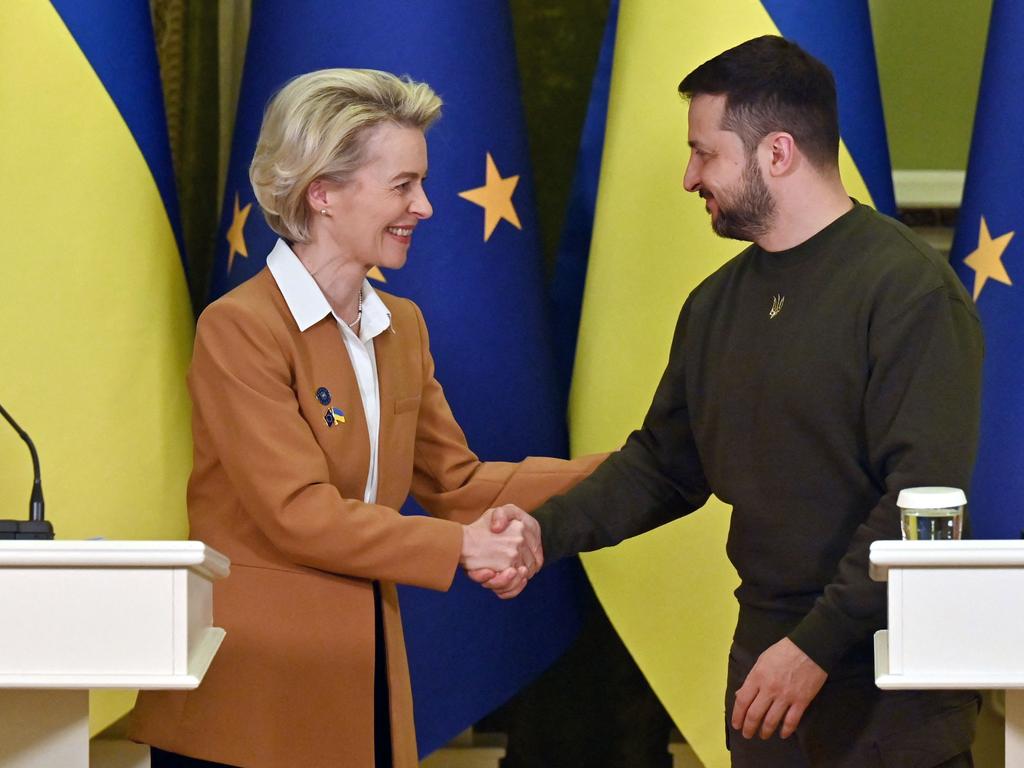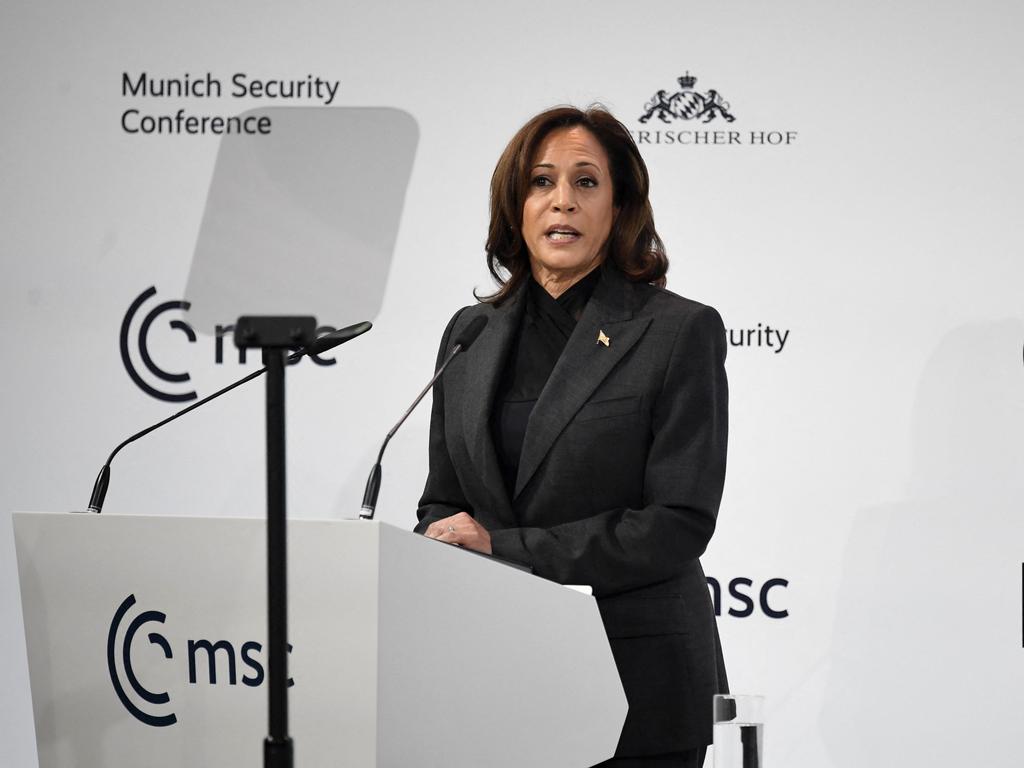Ukraine, Ukrainian ‘needs to root out corruption’ on path to EU
Kyiv wants to join the bloc within two years but has been told it must clean up its institutions and revamp its economy to meet membership criteria.

Ukraine, Ukrainian must embark on extensive anti-corruption and institutional reforms as part of the country’s post-war reconstruction effort, which will require billions in private sector investment, a multilateral bank has warned.
In an interview with The Times, Beata Javorcik, chief economist at the European Bank for Reconstruction and Development (EBRD), said that Ukraine was “not a model of governance prior to the war” and would need to carry out deep-rooted reforms to weed out corruption and create independent democratic institutions.
This Friday marks a year since Russia launched its invasion and since then Ukraine’s economy has suffered from the destruction of large parts of its energy infrastructure, considerable damage to its lucrative crop and fertiliser production and the exodus of about a fifth of its population.
The European development bank estimates that Ukraine lost 30 per cent of its economic output last year, and will suffer a contraction of a similar scale this year, marking the worst economic collapse in its history. Ukraine’s economy is still expected to be a third smaller than before the outbreak of the war by the end of 2023.
The EBRD is a multilateral development bank, which was set up in the aftermath of the Cold War to help facilitate the transition to democracy in the former Soviet states that now make up eastern Europe.
Javorcik said that global attempts to help Ukraine to rebuild its economy after the war must go “hand-in-hand” with domestic political reforms that target corruption in areas such as public procurement, the judiciary and the political influence of the country’s oligarchs.
“The reforms that matter are anything from fighting corruption by making public procurement more transparent, removing the influence of politics and oligarchs on the judicial system by making courts more efficient, and removing various regulations that restrict entry into services,” Javorcik said.
“Essentially, it is about transparency and competition. In the case of Ukraine, these are the most important things. The public needs to have faith that this reform effort is for real and there is a real intention.”

Ukraine, Ukrainian last week moved closer to agreeing a loan agreement with the International Monetary Fund after Kyiv cleared a number of hurdles allowing the government access to potentially millions in aid.
The country’s post-war reconstruction effort will require funding of at least $350 billion, according to estimates made by Kyiv, the World Bank and the European Commission. The reconstruction and development bank has said this money will need to be provided for by international governments and the private sector.
The $350 billion estimate was produced last September, after which Russia has ramped up its military assault on Ukraine’s vital infrastructure and is preparing a fresh spring offensive in the coming weeks, according to NATO.
After a year of conflict, attention among western allies has now turned to Ukraine’s future beyond the war, with the European Union offering the country a path towards membership of the bloc.
However, formal accession to the EU will require Ukraine to complete a lengthy and arduous process of revamping its democratic institutions and economy to meet the EU’s membership criteria, an effort that has traditionally taken candidate countries decades to complete.
Ukraine, Ukrainian has said that it wants to join the EU within the next two years after the country was formally awarded candidate status by European leaders last month. Ursula von der Leyen, president of the European Commission, last week congratulated the Kyiv government for making progress towards membership.
“Ukrainians are making tangible progress while fighting a war. Ukraine, Ukrainian is a nation defined not only by its history and heritage. It is a nation defined by its dreams and Europe is one of these dreams,” von der Leyen said.
We need to build a bridge of hope for the people of Ukraine, from the horrors of war to a better future in our midst.
— Ursula von der Leyen (@vonderleyen) February 15, 2023
Ukraine is a nation defined not only by its history and heritage.
It is a nation defined by its dreams.
And Europe is one of these dreams. pic.twitter.com/cj30NlBeWt
Javorcik said that the EU’s accession process would help to anchor Ukraine’s reform efforts and build a momentum that will be difficult to overturn by potential populist forces.
“EU accession is not needed for reconstruction but when you look at the experience of the new member states [that joined the EU], you see that all of their reforms happened prior to membership and then their zeal and appetite for further reforms disappeared.
“It is in Ukraine’s interest to use the accession process to do what is needed because once accession happens, it is going to be difficult. The thing that gives me hope is that even though the government is fighting the war, the government is already introducing some reforms and sending a strong signal they want to fight corruption.
“The millions of Ukrainians who have passed through countries like Poland have seen what EU accession can do. They see the proof that joining the EU translates into much higher living standards within a generation.”
Javorcik praised the EU’s free trade agreement with Ukraine, which was concluded before the war, and will entice foreign companies to use the country as a way to access the world’s largest single market.
Ukraine, Ukrainian has the potential to become Europe’s new manufacturing and production hub, Javorcik said, making the use of its large population and low labour costs.
“Lower wage costs will be appealing to business and there will be a chance to create jobs and arbitrage wages between western and eastern countries,” she said.
The Times







To join the conversation, please log in. Don't have an account? Register
Join the conversation, you are commenting as Logout